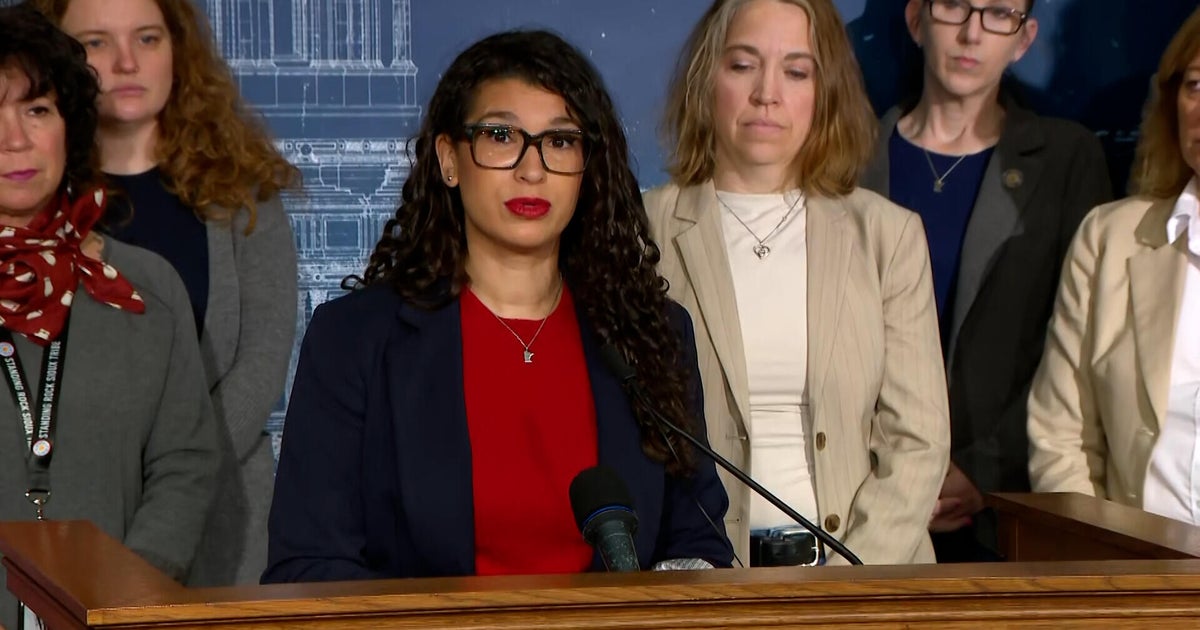GOP tax overhaul: How it would alter alimony
NEW YORK - Congress' giant tax overhaul is poised to reach virtually every corner of American life - even Splitsville.
Republicans delivered their sweeping plan Wednesday to an exultant President Donald Trump to sign. One provision scraps a 75-year-old tax deduction for alimony payments. The new rules won't affect anyone who divorces or signs a separation agreement before 2019.
Many divorce experts worry that the change will make negotiations tougher and lead to less spousal support as cash goes to taxes instead. Congressional tax writers say it's only fair to married couples.
A look at the details:
WHAT'S CHANGING? HOW DOES IT WORK NOW?
In any divorce commenced after Dec. 31, 2018, the spouse paying alimony can't deduct it, and the spouse receiving the money no longer has to pay taxes on it. Now, it's the opposite.
Divorce lawyers say the current setup tends to preserve more money overall to allocate between spouses, helping them afford living separately.
"This is something that was very helpful in settling divorce cases," says Jef Henninger, a New Jersey matrimonial lawyer.
SHOW ME THE MATH?
Imagine high-earning Spouse A now pays and deducts $30,000 a year in alimony. Spouse A's income is federally taxed at 33 percent, so the deduction saves him $9,900.
Lower-earning Spouse B owes taxes on the alimony at a 15-percent rate, paying $4,500 instead of the $9,900 that would be due at Spouse A's rate. The two have saved $5,400 between them, and Spouse A got a break that makes the payments more affordable.
Tom Leustek estimates the deduction saves him about $5,000 a year - "not a trivial amount to me," the New Jersey plant biology professor says.
"The person actually getting the money should be the one who pays taxes on it," he says.
HOW MANY PEOPLE GET ALIMONY ANYWAY?
Government statistics vary. The Census Bureau says 243,000 people got alimony last year, 98 percent of them women. The Internal Revenue Service says 361,000 taxpayers claimed they paid a total of $9.6 billion in alimony in 2015, though only 178,000 reported receiving spousal support. (The gap has irked the government for years; the IRS said in 2014 it was improving its strategies for dealing with the discrepancies.)
Child support payments are separate, and over 4.3 million people got them last year, census figures show. Some divorces involve alimony and child support.
The U.S. divorce rate peaked in the early 1980s and has kept declining since. More than 813,000 couples around the country divorced in 2014, according to federal statistics.
WHAT ARE THE ARGUMENTS FOR THE CHANGE?
The tax-writing House Ways and Means Committee calls the alimony deduction a "divorce subsidy."
"A divorced couple can often achieve a better tax result for payments between them than a married couple can," the committee noted last month.
The panel also argued that alimony should be treated like child support, which already isn't tax-deductible for the payer or taxable for the recipient.
Congress's nonpartisan Joint Committee on Taxation estimates repealing the deduction will add $6.9 billion in new tax revenue over 10 years. That is equal to less than half a percent of the $1.5 trillion tax cut plan.
WHAT ARE THE CONCERNS?
Critics fear that without the deduction, higher-earning spouses won't pay as much to their exes. New York City matrimonial lawyer Malcolm S. Taub foresees future alimony recipients losing 10 to 15 percent of what they'd get under the current law.
Lawmakers are "taking money from people who've undergone the trauma of divorce, and they're taking money from people at one of the worst times of their life," he says.
Some prenuptial agreements have alimony provisions that assume the tax deduction, said Scott Swier, a South Dakota attorney. Some states might need to change alimony guidelines embedded in their laws.
The National Organization for Women and the American Academy of Matrimonial Lawyers opposed the change. Boston-based family law attorney Regina Snow Mandl was concerned enough to send clients an email alert. Massachusetts matrimonial lawyer Wendy Hickey says she's fielding calls from clients "in a panic, wanting to get everything done," though the pressure has eased since lawmakers pushed back the effective date to 2019.
As for the "divorce subsidy" argument, Mandl retorts: "I've never heard a couple say that they're getting divorced for tax reasons."
Still, the president of the Association of Divorce Financial Planners, Cheryl Glazer, notes alimony is just one factor among many that will determine how any particular future divorcé fares at tax time.



